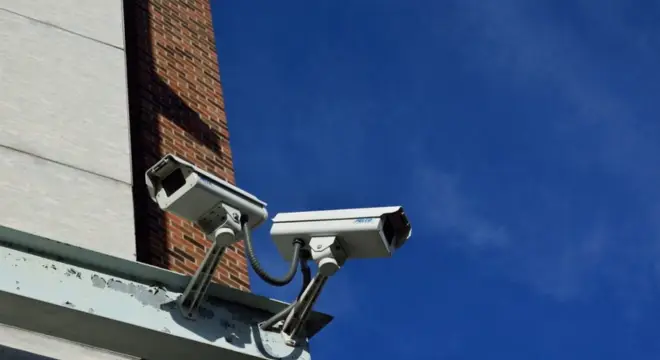Detroit Police Officer Under Investigation for Lincoln Park Home Invasion
I still can’t get over how a simple Saturday night outing could turn so badly for someone sworn to uphold the law. You picture a cop finishing a shift or grabbing a beer like any of us—but then, in Lincoln Park last September 27, it didn’t stay ordinary. Officer Shane Mykel Shaw, a 34-year-old Detroit police officer, ended up facing multiple felony charges after a confrontation at a neighbor’s house escalated into a full-blown home invasion.
It’s one of those stories that makes you question trust, authority, and what happens when boundaries are ignored. For you, it’s more than just a headline; it’s a reminder that even those tasked with protecting us can make choices with serious consequences. And for the family involved, it was a night they’ll never forget—one visit from a supposed protector of the law turned their home into the scene of an unexpected assault.
Before we go further, you’ll want to understand exactly how a dispute over a car and a sidewalk escalated into criminal charges, and what this means for community trust in Detroit law enforcement.
Timeline of Events: From Routine to Arrest

It was just before 11 p.m. on Saturday, September 27, when a night that started like any other quickly spiraled out of control. Officer Shane Mykel Shaw, 34, was riding his bicycle in Lincoln Park to grab a beer, never expecting that a simple detour would land him in serious legal trouble.
According to the Click On Detroit report, he arrived at the 1700 block of Gregory Avenue and demanded that a neighbor move their car, claiming it was blocking the sidewalk.
The family—three men and a 59-year-old woman—had never met Shaw before. They noticed he smelled of alcohol and politely told him to leave. Shaw, however, insisted they follow his orders because he was a police officer.
What might have been a tense verbal exchange escalated when Shaw stormed into the house and started fighting with one of the men, prompting the family to call 911. By the time Lincoln Park police arrived, both Shaw and a family member were grappling on the kitchen floor. He was taken into custody but initially refused to get into the squad car, leading to an additional charge.
Reading this, it’s hard not to feel the tension and chaos of that night—what started as a casual bike ride ended with felony charges and a family’s shaken sense of safety.
The Victims’ Perspective: A Family’s Ordeal
Imagine being at home with your family, only to have a complete stranger demanding that you move your car. That’s exactly what happened to the family in Lincoln Park. They were going about their evening when Shaw, claiming police authority, entered their lives uninvited. One of the family members noted the officer smelled of alcohol and immediately became aggressive when asked to leave.
For the family, the ordeal was terrifying. A confrontation over something as mundane as a car escalated into a home invasion and physical altercation. The fact that the officer was sworn to protect the public only added a layer of shock and betrayal.
Incidents like this aren’t isolated—similar reports, like the Elgin teens charged in connection with home invasion and assault, show how quickly disputes can escalate into felonies
This perspective is crucial because it shows the human cost of the incident beyond the headline—it wasn’t just an arrest; it was a direct threat to the safety of ordinary residents.
Officer Shaw’s Account: His Side of the Story
Shaw has painted a very different picture of that night. In an interview with police the following morning, he claimed he was only trying to prevent the family from getting a ticket for illegal parking, something he said had happened to him before.
He insisted that the family was the aggressor and that he was pulled into the house against his will.
While it’s important to present his side, the details reported by police tell a different story: Shaw entered the home without consent, engaged in a fight, and resisted arrest. His claims do not negate the seriousness of his actions, which led to felony charges.
Looking nationally, violent home invasions, like the New Jersey case that led to four arrests, highlight the systemic challenges communities face when safety is compromised.
Presenting both perspectives helps readers understand the complexity of events and the conflicting narratives surrounding law enforcement incidents.
Legal Charges and Potential Consequences
The charges facing Shaw are severe. He has been arraigned on first-degree home invasion, resisting arrest, and assaulting a police officer—all felonies in Michigan.
Despite having no prior criminal record, the legal consequences he faces are substantial. His bond was set at $25,000, and he is currently out on an electronic tether.
Understanding the legal side is important because it puts the situation into context. These aren’t minor infractions; first-degree home invasion alone carries the potential for serious prison time.
For readers, it also underscores that holding law enforcement accountable isn’t just a matter of public opinion—it has real legal implications.
Detroit Police Department’s Response: Accountability Measures

The Detroit Police Department has acted quickly in response to the arrest. Shaw has been suspended with pay, though steps are underway to remove it. An internal affairs investigation is now open, tasked with reviewing the incident and determining the appropriate disciplinary measures.
Commander Michael McGinnis emphasized the department’s commitment to accountability, stating that members will be held responsible for their actions if found guilty. This section is important because it shows how institutions respond when one of their own is accused of misconduct.
For readers, it reassures them that public trust and integrity are priorities, and that the department recognizes the seriousness of the situation.
Alcohol, Authority, and Abuse of Power
It’s hard not to notice how alcohol and authority collided that night. Shaw reportedly smelled of alcohol, yet leaned heavily on his badge to assert control, telling the family they had to follow his orders. What starts as a dispute over parking quickly became a dangerous display of power gone wrong.
Cases like the one in Lincoln Park remind us of other harrowing experiences, such as the Spring Hill woman targeted in home invasion, robbed at gunpoint, where families faced unexpected threats in their own homes.
For you reading this, it’s a reminder to stay aware, question unchecked authority, and understand that even those sworn to protect can make catastrophic mistakes.
Broader Implications: Police Accountability and Ethics
Shaw’s arrest isn’t an isolated incident. Across the U.S., similar cases of police misconduct have eroded public trust. Experts in criminology and legal ethics stress the importance of transparency, internal investigations, and swift accountability.
Without these measures, communities lose faith in those tasked with protecting them.
For you, this is a chance to see the bigger picture. It’s not just about one officer or one night; it’s about systemic issues that need attention, discussion, and action to prevent recurrence.
For real-time updates and discussion on safety and community alerts, you can stay connected through our WhatsApp feed where we share timely news and insights.
Takeaways for the Public
So, what can we take away from all of this? First, never underestimate the importance of reporting misconduct, even when it comes from someone in uniform. Second, maintaining personal safety and boundaries is critical—knowing your rights can prevent escalation.
Third, community engagement matters: conversations, neighborhood watches, and transparency initiatives all strengthen public trust.
For readers like you, these lessons are practical and actionable. It’s not just about consuming the news—it’s about learning, reflecting, and being prepared if you ever face an unexpected situation.\
What’s your perspective on holding law enforcement accountable? Drop your thoughts in the comments below—I’d love to hear how you think communities and police can rebuild trust.
Closing Thoughts
At the end of the day, Officer Shaw’s actions are a stark reminder of why accountability and ethics in policing cannot be optional. The family in Lincoln Park, the broader community, and law enforcement itself are all affected.
For you, this story is an invitation to think critically about authority, safety, and the role of ethical standards in everyday life.
What’s your perspective? How should communities and law enforcement rebuild trust after incidents like this? Share your thoughts, because public engagement is key to meaningful change.
If you want to read more about incidents like this, check out our home security section for similar stories and updates.
Disclaimer: This article is based on publicly available news reports and official statements. It is intended for informational purposes only and does not constitute legal advice. All individuals mentioned are presumed innocent until proven guilty in a court of law.


